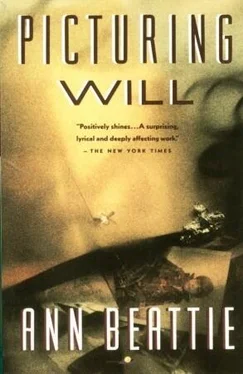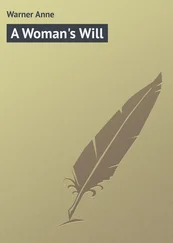Ann Beattie - Picturing Will
Здесь есть возможность читать онлайн «Ann Beattie - Picturing Will» весь текст электронной книги совершенно бесплатно (целиком полную версию без сокращений). В некоторых случаях можно слушать аудио, скачать через торрент в формате fb2 и присутствует краткое содержание. Год выпуска: 1991, Издательство: Vintage, Жанр: Современная проза, на английском языке. Описание произведения, (предисловие) а так же отзывы посетителей доступны на портале библиотеки ЛибКат.
- Название:Picturing Will
- Автор:
- Издательство:Vintage
- Жанр:
- Год:1991
- ISBN:нет данных
- Рейтинг книги:3 / 5. Голосов: 1
-
Избранное:Добавить в избранное
- Отзывы:
-
Ваша оценка:
- 60
- 1
- 2
- 3
- 4
- 5
Picturing Will: краткое содержание, описание и аннотация
Предлагаем к чтению аннотацию, описание, краткое содержание или предисловие (зависит от того, что написал сам автор книги «Picturing Will»). Если вы не нашли необходимую информацию о книге — напишите в комментариях, мы постараемся отыскать её.
Picturing Will — читать онлайн бесплатно полную книгу (весь текст) целиком
Ниже представлен текст книги, разбитый по страницам. Система сохранения места последней прочитанной страницы, позволяет с удобством читать онлайн бесплатно книгу «Picturing Will», без необходимости каждый раз заново искать на чём Вы остановились. Поставьте закладку, и сможете в любой момент перейти на страницу, на которой закончили чтение.
Интервал:
Закладка:
“Aren’t you thankful that somebody believes in you?” Mary Vickers said.
The pilots had expected artillery fire, but Jody was speaking softly as she came up behind them. They veered off course and were allowed to try for greater altitude one last time.
“Did Mel ever tell you he ran out of gas when he was driving Wag and Will to the lake?” Mary Vickers said. “He wanted me to keep it a secret. He thought you’d think he was irresponsible. Another time he called from New York and wanted to know what your favorite color was. He didn’t know your favorite color.”
Jody smiled. “You think everything he does is endearing.”
“I told you,” Mary Vickers said. “I think you’re lucky. I envy you.”
“You could leave Wagoner and do something else,” Jody said. If Mary was going to keep after her, she thought it only fair that she be allowed to mention the unmentionable.
“You go first,” Mary Vickers said. “Without you I’d go crazy. That would make it a lot easier to leave him.”
FOUR
Jody sat next to Mel in the porch swing, pushing them gently back and forth with the tips of her toes. Mel was a tall man with disproportionately large hands and feet he was used to being kidded about. The dark brown eyes he had inherited from his Greek father were his best feature; from his English mother he had gotten his narrow lips, slight chin, and wavy hair. She had met his parents once, years before, when they visited Mel in Virginia. He had dropped out of business school and stayed around trying to figure out what to do, meanwhile writing a novel he never finished. He was rescued — if that was what it was — by his former roommate from Exeter, who opened a gallery in New York City. Mel was in charge of the bookkeeping and administration of the gallery, but more and more often he dropped the names of the celebrities who’d come in to browse, mentioned the parties he tagged along to, discussions held below Sandro Chia’s mural at Palio. Jody listened to his accounts of city life with the same mixture of affection and skepticism she reserved for Will’s theory that G.I. Joes had proliferated all over the planet, so that everyone in the world but him had dozens. Will would come right out and say I want; Mel implied it, and could contain his breathless excitement better than Will.
Mel’s plane from New York had been late, as usual. The long-promised airport improvements had nothing to do with flights; instead, bulldozers plowed up fields to expand the parking lots. It was no longer possible to abandon your car some distance from the airport to escape paying for parking. As Mel liked to point out, many of the so-called improvements in town were detractions. The city council couldn’t decide whether to build a bypass or widen the highway again to accommodate the traffic. Signs saying Security Watch were posted on downtown streets as often as houses were broken into. Mel had been using these things as leverage, trying to convince her to move to New York.
When she called the airport and heard that his plane would be delayed an hour, she had rounded up Will and Wag, dumped Captain Magic Rainbow Beads into the tub, and helped the boys undress as the big bubbles rose. Blown from the palm of the hand, they stayed airborne as long as Pustefix bubbles sent sailing from the bubble wand. She launched Will’s rubber turtle, which could float with a bar of soap in its back but now held a devotional candle, which she lit when she turned off the water. The two boys climbed into the tub with their Night-Viper G.I. Joes. After a few seconds, Will blew out the candle so Jody could remove the little glass cup and Joe could have a ride in the turtle’s belly. It occurred to Jody that an idyll such as that might have been what some real soldier envisioned, dying in combat: to be set afloat, if not among the bulrushes, then amid the Captain Magic bubbles, safe in the hollow belly of a grinning turtle. She got wet helping them soap up and rinse off. Out of the tub, Wag exaggerated his shivering and suffering, allowing her to fold him in a big bath towel and hold him against her legs. Will took hold of his towel and shimmied, like a person about to lose a Hula-Hoop that had already slipped to his knees. Neither boy would let her come near him with a brush. Wag had pleaded to bring the big damp bath towel to play with in the backseat as she drove to the airport to get Mel. All the way there they held it high, a sail that wouldn’t fill with wind but that they made to flap erratically, giggling behind it as she took the winding curves. Later Mel had gotten them to bed with almost no trouble, though he was probably wondering, as was she, whether the house didn’t seem almost too quiet.
“No wonder kids have nightmares,” Mel said. “Everything in those books has to be made literal. It says, ‘The wind that night had a bite to it,’ and there’s a drawing of a gaping mouth with shark’s teeth.” He bared his teeth and gently sank them into Jody’s shoulder. Then he leaned back, sighing dramatically. “It’ll be his lucky day when he can read pornography under the sheets with a flashlight,” he said.
Wag was spending the night because Mary Vickers’s husband had come home drunk. Mel had used this information, too, as leverage, saying that people were no different wherever you went. He implied that he was a saint, compared to men like Wagoner Vickers.
“How can you compare yourself to a fifty-year-old insurance agent?” Jody said.
“How can you pretend to be excited by taking pictures of glassy-eyed girls holding nosegays when you should be taking serious photographs?”
“Don’t put me down for supporting myself,” she said. “I spend a lot of time photographing for myself.”
He had her, though. He was only repeating what she had said to him on the phone earlier in the week, when she had been feeling blue. Mel had made the mistake of trying to bolster her with praise, which only resulted in her becoming reflexively cynical. It was easy to be admired in a small town, she had said. Reassuring to know that you could make a life for yourself. But it was also a dead end. Even the wedding photographs themselves had started to make her sad: documents that would allow people to look back and wonder about their naïveté or their self-righteousness that would one day turn to skepticism. That had been Jody’s reaction when she looked back at photographs of herself and Wayne. She could see that she had romanticized their little house into something it had never been. That she had remembered the landscapes as more inspirational than they were, filled with scrub and pines and mountains too far in the distance. Even the photographs she had been so proud of in those days now seemed terribly forced: an obvious detail seen with a too-practiced eye; the beginner’s conventionally unconventional cropping; filters that artificially changed what would have radiated as intrinsically complicated if photographed correctly. These days she was transfixed by one of Man Ray’s rayographs of what looked like a white ship in a bottle, fuzzy enough to be a dream ship, the bottle floating against a cloudy sky, and by Coplans’s incisive examination of his own aging body. She wanted to be capable of working with such exactitude. And only privacy would make that possible: no more polite comments about the weather as she worked; no bottles of champagne unless she was so proud of what she turned out that she went out and bought the champagne.
“Are we ever going to take that walk, or are we going to sit here with horns locked all night?” Mel said.
She went into the house without comment to get a warmer sweater. A cold wind had begun to blow. Rummaging through the hall closet, she thought of the illustration in Will’s book and smiled at Mel’s comment about everything in storybooks having to be personified. Sometimes Mel doctored Will’s books for her amusement. In one that gave samples of things mentioned, such as a scratch-and-sniff patch that smelled of roses, he had crossed out the word “Straw” on one of the pages and written “Kiefer” above it. At the end of another book he had taped an index card with an alternate ending, in which all the characters flushed each other down the toilet and went to Happy Sewer Land. Will knew Mel’s changes were jokes and would never let her pass them off without explaining them in detail. She blamed Will’s crayoning in the stairwell on Mel’s scribbling in his books. Mel maintained that Will was a budding artist. “Would you rather have him take it out on the stairwell now or grow up and waste his time being Cy Twombly?” he had said. Still, she had made the two of them repaint the stairwell. They had come upstairs with white paint on the tips of their noses and brushes held behind them like horses’ tails and pranced around the kitchen. She worried that they thought of her as uptight every time she tried to preserve order. She had a sense, too, of how ridiculous she sounded every time she tried to cajole Will. For some reason Mel never sounded ridiculous, but she did, saying, “Oh, don’t you want to hear a bedtime story? I’ll turn all the adults into funny animals and pretend that one of your favorite TV characters is there with them. It’s a party that you can go to without having a bath! Just close your eyes. I’ll get you a puppy and double your allowance and never again cut your fingernails if only you’ll listen to this very, very important bedtime story.”
Читать дальшеИнтервал:
Закладка:
Похожие книги на «Picturing Will»
Представляем Вашему вниманию похожие книги на «Picturing Will» списком для выбора. Мы отобрали схожую по названию и смыслу литературу в надежде предоставить читателям больше вариантов отыскать новые, интересные, ещё непрочитанные произведения.
Обсуждение, отзывы о книге «Picturing Will» и просто собственные мнения читателей. Оставьте ваши комментарии, напишите, что Вы думаете о произведении, его смысле или главных героях. Укажите что конкретно понравилось, а что нет, и почему Вы так считаете.












